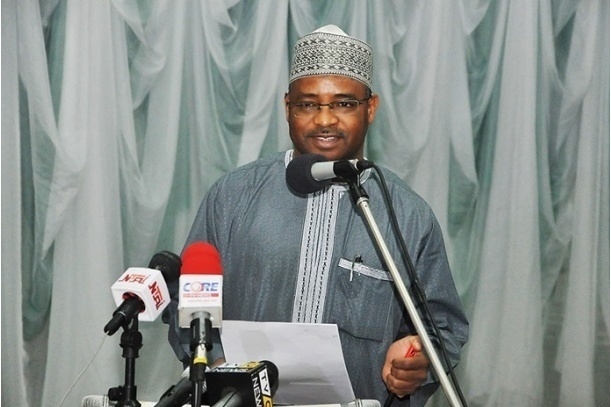Latest News
Nigeria to provide digital identification of all citizens by 2024

News Highlight
The DG of NIMC said Nigeria needs a unique digital ID platform to enhance governance, help citizens to participate in the digital economy, foster growth, and lift people out of poverty.
Director-General of the National Identity Management Commission (NIMC), Aliyu Aziz, said the Federal Government plans to provide lifelong unique identification (ID) of every Nigerian residing in the country and in the diaspora within the next five years. Aziz made the announcement on Tuesday while speaking at the Fifth Annual Meeting of the Identity for Africa (ID4Africa) Movement holding in Johannesburg, South Africa.
The DG of NIMC said Nigeria needs a unique digital identification platform to enhance governance, enable citizens to participate in the digital economy, foster growth, and lift people out of poverty. The idea of digital IDs – the electronic equivalent of physical identification – has been gaining traction around the world. Some of the other touted benefits of digital IDs, according to experts, include enhancement of financial inclusion and personal data security.
Aziz, who spoke to over 1,500 delegates at the world’s largest identity for development gathering, said Nigeria is executing a digital identity ecosystem project endorsed in September 2018 by the Federal Executive Council (FEC). The government’s plan was elaborated on by Aziz in his paper, titled “Digital Identity the Cornerstone to Effective Service Delivery.”
“The ecosystem approach of enrolment will constitute trusted partners, and a pay-per-play model for successful enrolments,” the head of NIMC said, adding the digital identification platform will be linked to functional ID registries to access services. “The purpose of the ecosystem approach is to leverage existing capabilities and enrolment facilities of government agencies, partners and private sector operators in Nigeria, as opposed to building new ones.”
The stakeholders and partners in the ecosystem approach, according to the DG, include the National Population Commission (NPC), Nigeria Immigration Service (NIS), Federal Inland Revenue Service (FIRS), Central Bank of Nigeria (CBN), National Health Insurance Scheme (NHIS), Independent National Electoral Commission (INEC) and the Federal Road Safety Commission (FRSC). Others include the Corporate Affairs Commission (CAC), Nigerian Communications Commission (NCC), Joint Admissions and Matriculation Board (JAMB), the Nigeria Police Force (NPF) and the National Pension Commission (PenCom).
“Proving ‘who is who’ in Nigeria is critical to accessing services physically and electronically as well as in identifying the targeted beneficiaries of a programme, project or scheme,” Aziz noted at the ID4Africa taking place on June 18-20. “all modern economic services are done digitally and rely on good identification in order to promote economic growth and opportunities.”
In addition, he said the ecosystem approach will provide full coverage of the target population within the set timeframe. Other benefits of the digital ID ecosystem approach will include collection of biometric data nationwide in one go; coordinating efforts to avoid duplicating data; reduction of cost and time for data collection; nationwide coverage; expeditious service delivery; and digital verification of IDs anytime and anywhere in Nigeria.
As of January 1, 2019, Aziz said the government began the mandatory enforcement of the use of the National Identification Number (NIN) for such services like application for and issuance of passport, registration of voters, opening of bank accounts, all consumer credit transactions, purchase of insurance policies, transactions with social security implications, all land related transactions, transactions specified under the contributory health insurance scheme, payment of taxes, transactions pertaining to pension, admission into schools and all other relevant government services.
Related News
Latest Blogs
- The Museum of West African Art saga
- The complexity and complication of Nigeria’s insecurity
- Between bold is wise and wise is bold
- Prospects of port community system in Nigeria’s maritime sector
- Constitutionalism must anchor discipline in Nigerian Armed Forces
Most Popular News
- NDIC pledges support towards financial system stability
- Artificial intelligence can help to reduce youth unemployment in Africa – ...
- Africa needs €240 billion in factoring volumes for SME-led transformation
- ChatGPT is now the most-downloaded app – report
- Green economy to surpass $7 trillion in annual value by 2030 – WEF
- CBN licences 82 bureaux de change under revised guidelines






